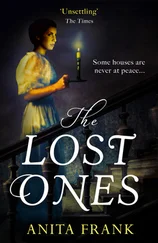He clambered spryly down to the cockpit deck. The girls, June and Selma, were cooking bacon in the galley below, and chattering back and forth. Howard peered over the transom to check on his water circulation through the engines. Kip came back from the bow along the side deck, carrying the made-up bow lines. As he stowed the lines he said, “All clear forward, Skipper.”
“Good deal. Hatch too?”
“Dogged down tight.”
“We’ll take some water forward when we get into the Stream.”
Kip lit a cigarette and said, “Damn, I hate to have this thing ending. I was saying to Selma in the night, we’ve never had a better time.”
“Glad you people could make it.”
“Howard, I swear to God you’ve taken off two inches around the middle, and you’ve got a tan there, man, that won’t quit.”
“The thing about cruising, the boat is moving all the time and you’re balancing yourself against it and so all day long you’re getting exercise without hardly knowing it.”
June called them to breakfast. Howard perched where he could watch the open sea ahead. Getting to be so many pleasure boats with automatic pilot there was no guarantee anybody would get out of your way. Kip got the eight o’clock news on the transistor, a Miami station.
They had all been following the Staniker case, theorizing about it. The announcer said that an informed source had said that it now appeared, based on new evidence, that the Harkinson woman was going to be indicted for the murders of Staniker and the Akard boy.
“Well, I’ll be a son of a gun!” Kip said. “That old gal must be a real pistol.”
“A face that sunk one ship anyway,” Selma said tartly. “Some part of her at least,” Kip said. “Here we go again, kids,” June said.
“Honestly though,” Selma said, “it was really like a miracle the Boylston girl lived through such a terrible ordeal.”
As he put his plate aside and picked up his coffee cup, Howard saw his wife look obliquely at him and look away. And he knew only he was sick of that particular expression.
He cleared his throat and said, “Are we all friends?”
“What have I done now?” Selma said.
Without looking toward June, Howard said, “I should have told you kids this sooner, I guess. Confession is good for the soul or something. When June and I brought this bucket across the Gulf Stream alone, I wasn’t scared. I was plain terrified. I didn’t know there was so much water. I was green, and I didn’t know what the boat could take and I didn’t know how to handle it in seas like that.”
“Howard!” June said.
“Anyway, we saw that Muñequita, bobbing and drifting along, sliding up and down those big damn swells. June thought she saw something for a moment, like a child’s hand. I tried to come about and see if I could take that boat in tow, but I couldn’t make myself do it. That’s how I tore the radio cable loose and busted the television. It was such a sad chicken performance that when we got into Bimini, I didn’t open my mouth.”
June said quickly, “Howard, really! It probably wasn’t that same boat at all. And what I saw was a rag flapping or something. Honestly, if you can find anything to blame yourself for, you’ll do it. It’s like a compulsion with you.” She looked at the others. “I begged him not to try to get near that boat. But you know my Howard. He has to try. You know, if it was that same boat, and if she was aboard it, can you imagine the mess if we came too close and sort of hit it and tipped it and rolled her out of it. It was just some old hulk that floated away from someplace, dear.”
Kip said solemnly, “I want to do all my cruising with somebody with the good sense to get scared at least once a day.”
“Howard dear,” Selma said, “you make this boat feel safe as a church, you really do.”
June came to take Howard’s cup to refill it with hot coffee. She let her fingertips rest on his hand for a moment as she took the cup. She looked into his eyes. It was not the same look as that other look. He could not read this one either, but he knew it was better. He knew a lot of things were better.
“What’s he saying about visibility?” Kip asked.
They listened, and the announcer said that with the change of wind during the night to a mild two to three knots out of the southwest, the whole southeast coast of Florida was becoming blanketed with smog from the fires burning in large areas of the Everglades.
Howard Prowt went out on deck and climbed to the flying bridge. Already the horizon was blurred ahead, and the sun, rising behind them, was haloed.
By eleven it had become so murky Howard Prowt halved his speed and recomputed the effect of the Gulf Stream and reset the automatic pilot on the new course. There was a small stench of burning in the heavy air, and the sun above the smog made an eerie light on the cruiser and the nearby sea, a light tinged with saffron. They all made jokes and laughed too quickly at them. “If you look up, kids, and see a man standing up there about forty feet in the air, he’s on the bow of a freighter.”
A small tired bird fluttered aboard, some kind of a warbler, and flew below and sat on a bunk with his bill agape. The women made tiny voices to him, and cooing sounds, and provided water and crumbs, but he would not touch them.
Ten minutes later a blue heron flapped out of the murk and perched on the big basket-work fish trap Selma had bought in Nassau. It was of Haitian design, and she planned to make some kind of decorative hanging thing out of it beside her pool. Howard had lashed it fast in the port transom corner, and the heron landed on the upper bulge of it which extended above the transom.
The heron had a brooding silence about it, a self-possession which seemed to match the strange overcast. His eyes were a startling savage yellow. The limited visibility made the sounds of the engines louder, as well as the sound of the bow wave. They seemed to be going faster than they were.
“Howard’s Ark,” Kip said. “We are rescuing the animals, one by one. Welcome aboard, boids.”
“A vote of confidence, dear,” said June, patting Howard’s arm.
“In about twenty minutes now, people, let’s hope we edge up to some hunk of mainland we can recognize. Pretty soon now I’ll put her on manual and slow her to a crawl.”
“Aye aye, sir. Want a lookout forward?”
“I’ll tell you when, Kip.”
When Selma went below for something she startled the small tired bird and it flew out on deck and landed on the fish trap about six inches from the heron’s talons. Howard said it would make quite a picture. The long and the short of it. June scurried and got her Instamatic and edged closer to the birds as Howard watched. Suddenly, with both slyness and a terrible indifference, the heron reached one taloned foot out to the side and clenched it on the small bird. He dropped the body and it fell down through the wide mesh of the fish trap.
“God damn it! God damn it!” Howard yelled, and without conscious impulse he hurled his half can of beer at the heron. It missed by a yard, spewing beer as it turned through the air. The heron gave a rusty gawking sound and flapped away.
“Look!” Selma called. “Hey, look right straight ahead! Isn’t that a building, a tall building?”
Howard hurried to the controls and just as he switched to manual control and dropped his speed, he saw the sea buoy about fifty yards off his port quarter.
June came and stood beside him. “Right on the nose again, honey. Old Captain Hornblower himself.”
“Sure, sure, sure,” he said, irritably.
She put her fingertips on his wrist. “I know. It made me feel lousy too. It was so cute, having the birds riding with us. But I guess it wasn’t like on purpose. You know? It’s more like kind of an instinct.”
Читать дальше
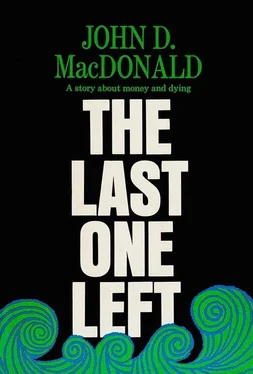

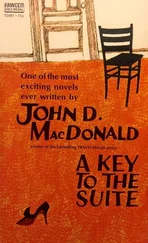
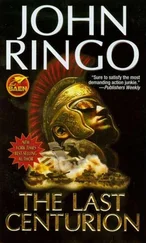

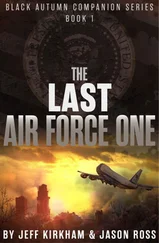
![Джон Макдональд - Wine of the Dreamers [= Planet of the Dreamers]](/books/430039/dzhon-makdonald-wine-of-the-dreamers-planet-of-thumb.webp)

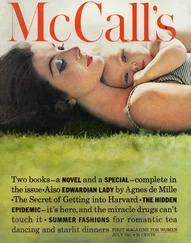
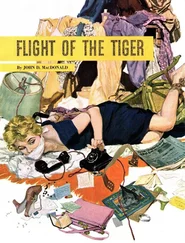
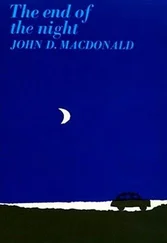
![Джон Макдональд - The Hunted [Short Story]](/books/433679/dzhon-makdonald-the-hunted-short-story-thumb.webp)
